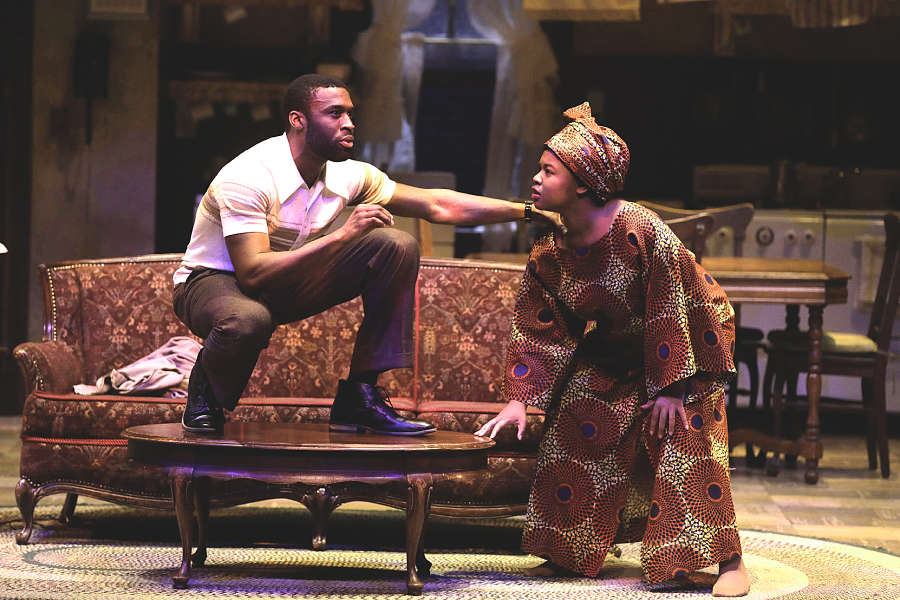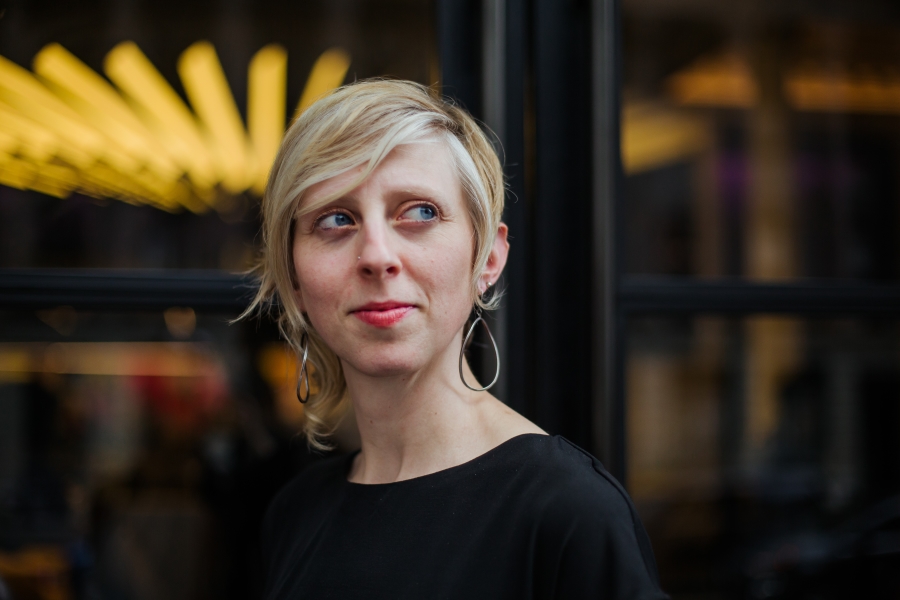Marissa Wolf began as the new artistic director of Oregon’s Portland Center Stage last September, and since then she’s been on a kind of listening tour of her adopted city as she plans the 2019-20 season, to be announced in February. The move to Portland represents a return to the West Coast: Though born and raised in Connecticut, Wolf spent formative years in the San Francisco Bay Area. Prior to accepting the job at PCS, she spent three years as associate artistic director at Missouri’s Kansas City Repertory, where she started a new-works festival, OriginKC.
ROB WEINERT-KENDT: You came up in Berkeley and San Francisco. Tell me about that scene.
MARISSA WOLF: The Bay Area was a wonderful place for a young theatre artist to cut her teeth. Even though it’s so expensive, I do continue to recommend it to young folks coming up because there is space to have a voice and be heard. It’s not so overrun with artists that people are like, “Yeah, yeah, move along.” There is a sense of possibility and opportunity. I was there for 10 years, and for 2 of those years I was the directing fellow at Berkeley Rep, and I really consider that to be my graduate school; my mentors were Tony Taccone and Les Waters. From there I went on to lead Crowded Fire Theater for six years. That was a moment of really being able to see how when you are helming a company, no matter the size, you get to put your money where your mouth is and really do something that makes a difference.
Why the move to Kansas City?
For as much collaboration and opportunities as there were for me as a director and arts leader in the Bay—I think this happens a lot, where there’s not a one-to-one upward path within one’s own community as an artistic director necessarily. I wasn’t going to go from Crowded Fire to the Magic to Berkeley Rep—that’s not a path that exists. So I knew for a while that I would probably have to leave town. It was very painful, because I loved the Bay Area very deeply and had a lot of family there and a lot of close collaborators. But I was really hungry to leap into the LORT level. Eric Rosen, the artistic director at KC Rep, asked me in one of my interviews: Where did I see myself in five years? I said, “I want to be running a LORT theatre.” And he said, “Great, come here, you can train to do that.”
You weren’t just working on a larger scale at KC Rep, but also in a much different community than the Bay Area. Can you compare the two?
One thing I learned by living in those two different communities is that you have to tune your ear to the conversations that are happening culturally, politically, and personally in the area in which you live. And they are different. I was going from programming often incredibly wild, experimental work to…I knew that going to a big regional theatre anywhere, including in the Midwest, was going to mean still bringing along a body of playwrights I was excited about, but pivoting in terms of the kinds of plays of theirs I was soliciting and putting before audiences. It also gave me the opportunity to reach out to some new voices I didn’t have access to before.
You also directed a fair amount there, right?
Yes. At one point I had the opportunity to co-direct A Raisin in the Sun. I wouldn’t have done that with Crowded Fire, because we were doing all new works. Doing it in Kansas City, I have to say, felt revelatory. At the first preview, I had tears in my eyes. I was kind of an outsider, a new person to that community, but that writing felt directly mapped onto the legacy of segregation in that city. Every city has its own history to grapple with, but Kansas City is a bit of a ground zero for redlining and a very calculated way of creating segregation. So it was really exciting to see the way a piece like that could feel like it was written today. Black and white audiences were so responsive and engaged with the piece throughout the run—that taught me a lot about listening to where those conversations are.

Tell me a little bit about your impressions of Portland, and of Portland Center Stage.
I love Portland; my spirit has a very West Coast ethos to it. My husband and I are die-hard composters, and we attend farmer’s markets all year round, so we were a bit more of the radical hippies in Kansas City, but in Portland, I would say we’re just normal white liberal people. So it feels like a wonderful match. I would say that, similar to Kansas City and a lot of mid-sized cities, it feels like there’s a very thriving art scene here. I’ve been seeing a lot of theatre from the mid-sized and smaller houses, which is exciting, because I deeply believe in supporting that ecosystem, and I’m looking forward to figuring out ways to connect and collaborate. And there’s a big literary art scene here, which feels unique to Portland. We’re across the street from Powell’s, which is an entire block.
I would also say, it’s been really interesting to begin to read about and wrestle with the city and the state’s history, including its history of exclusionary laws which kept Black people from moving here. I’m thinking about the wonderful ways in which the spirit of “Portlandia” made the city so famous, but also thinking about the invisibility of some of the deeper questions around race, power, and history that I think liberalism can mask.
You’re known primarily for new work. How big a role will that play in your programming?
A part of why I was hired was my deep love of and championship of new work and new voices. But I’m also very aware of and moved by a flagship theatre’s place in its region and community. So I’m also definitely dedicated to continuing the tradition of classics and musicals. It’s about the lens you bring, and about how those classics can be as urgent and vital as the new works. I am really excited about that mix. It feels very joyful for me.
I feel like one of the critical parts of my work as the new kid is to create access points for everyone throughout the season—whether you see yourself onstage or not, that there are ways in which you can engage with work even when it looks different from you or sounds different from you. But I would love to create a season in which basically all people in Portland can see themselves onstage.





